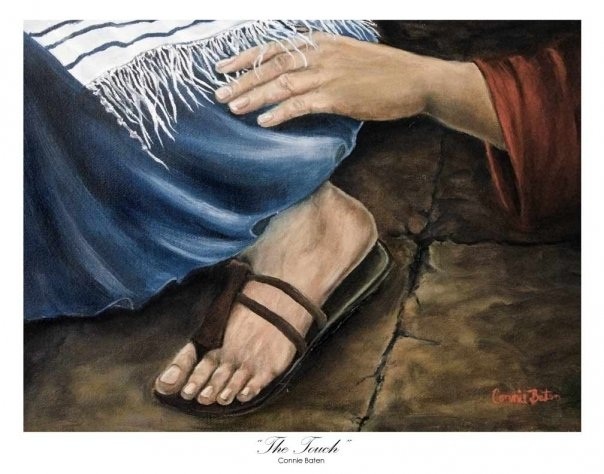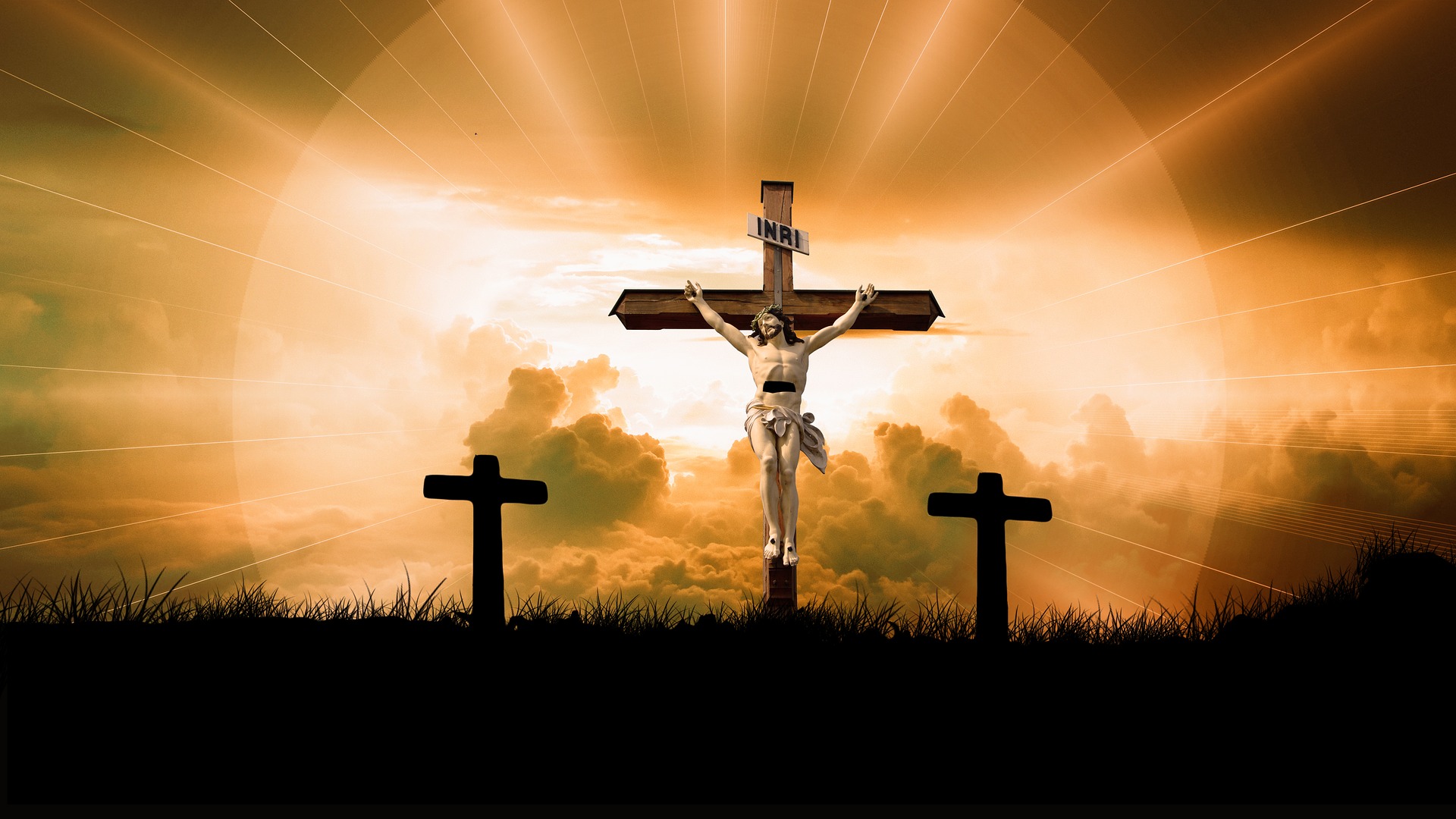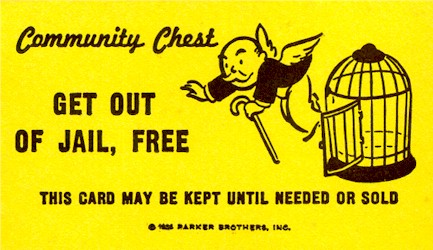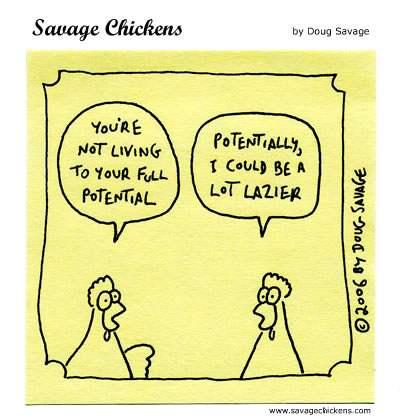NEVERTHELESS

“When an act of faith becomes one with the will of God it brings forth the glory of God.” (Tim Bagwell)
A precious friend of mine recently received a “bad report” concerning a life-threatening diagnosis. My first response was sadness, disappointment, discouragement and quite honestly, a feeling of hopelessness. A faithless word that means, “to lose the expectation of a thing.” But then God reminded me of another word; one that was much more worthy of his glory. Nevertheless! A faith-filled word that means, “In spite of that.” Granted, hopeless is a big word. It is a word that makes you feel like a grasshopper under the foot of a giant. But “nevertheless” is a bigger word. Nevertheless is a God word. It is a word that takes everything into consideration and still hopes and believes in spite of whatever the everything might be. Peter used it, Elijah used it, Joshua used it, and Jesus used it; just to name a few. Each one of them used it in the same context of facing the impossible of a situation, and in the face of it saying: “Nevertheless!” Scripture is filled with people who in faith, against all odds, dared to hope and believe in the nevertheless of God, and in doing so experienced the glory of God.
Some people look at giants through the eyes of fear and see themselves as grasshoppers. Others look at giants through the eyes of faith and see the giants as the ones who are the grasshoppers. The only difference between these two types of people is one word: Nevertheless! Scripture records that before Elijah went to be with the Lord, he asked Elisha what he could do for him before he was taken from him, and Elisha replied, “Let me inherit a double portion of your spirit.” Elijah said to him, “You have asked a difficult thing. Nevertheless, if you see me when I am taken from you, it will be yours – otherwise not.” And by refusing to take his eyes off Elijah, Elisha received a double portion of the anointing of God. Jesus, in similar fashion said to us, “I tell you the truth, anyone who has faith in me will do what I have been doing. He will do even greater things than these, because I am going to my Father.” Peter had toiled all day in his own efforts to catch fish and caught nothing, but at Jesus’ command to “let down your nets on the other side,” said, “Nevertheless, at your word Lord” and experienced the overflowing provision of God. The Israelite people saw themselves as grasshoppers before the giants who lived in the land that God had promised to give them, saying, “It is a land that devours those living in it” and “we were as grasshoppers in our own sight.” But Joshua and Caleb saw the giants as the ones who were the grasshoppers and said, “Nevertheless do not be afraid of the people of the land, because we will swallow them up” and they experienced the deliverance of God’s hand. I am reminded of Paul’s words in Corinthians 15:54 – “Death has been swallowed up in victory.” Death has been swallowed up by God’s grace. It no longer has the power to devour us. The devourer has been devoured. Jesus, wanting to show the “all things are possible” of God, waited to go to his friend Lazarus, not just to the point of improbability, but to the point of impossibility. He said to the disciples, “Our friend Lazarus is dead. Nevertheless, let us go unto him” and the disciples experienced the resurrecting glory of God. Afterward, Jesus said to his disciples, “Did I not tell you that if you believed, you would see the glory of God?” He tells us the same today. In Jesus, we are the resurrected of God. Scripture says he told them plainly, “Lazarus is dead, and for your sake I am glad I was not there, so that you may believe.” For their sake, that they might believe, he waited until after Lazarus died to reveal his glory. He did the same with us. Scripture tells us that we were “dead in trespasses and sins” and “in due time Christ died for the ungodly,” and that he has, “quickened us together with Christ, and hath raised us up together, and made us sit together in heavenly places in Christ Jesus.” God is not controlled by time. Time never says to him, “It’s too late, there’s not much time left, time is growing short, time’s up.” Time is God’s servant and he uses it to serve his purpose. Time exists in him and unfolds in life to serve him.
Every “nevertheless” spoken in God’s word resulted in seeing “the glory of God” and his will being done. I think it no coincidence that Elisha’s nevertheless evidenced the anointing of God given to us in Jesus. Joshua’s nevertheless evidenced the deliverance of God given to us in Jesus. Peter’s nevertheless evidenced the provision of God given to us in Jesus. And Jesus’ nevertheless evidenced that “escape from death” belonged to him and was in him. Each nevertheless spoken in faith, showed the willingness of God’s heart toward us in Jesus. The word “nevertheless” isn’t a retreating word in the face of improbability or impossibility. Those who spoke it by faith saw past the probabilities of what was seen and “in spite of that” dared to believe in the possibilities of what was not. God’s word is full of instruction to us and encouragement of us in what to do in the face of the impossible things we will encounter in this life. What God wants us to do, what God tells us to do concerning them, really comes down to two words: “Ask and believe.” Jesus promises us in his word, “You may ask me for anything in my name,” and then assures us, “All things are possible to those who can believe.” I wonder though, would he say to us today what he did to his disciples, “How foolish you are, and slow of heart to believe.”
Mark 2:1-2 records the story of a paralytic whose need moved a group of his friends to action and they brought him to Jesus. Scripture says, “When Jesus saw their faith, he said to the paralytic, “Son, your sins are forgiven.” He did this to show that the same God who had the power and the compassion to forgive our sins, also had the power and the compassion to heal our bodies. He is both, “the Lord who forgives all our sins and heals all our diseases.” I can’t help but consider that the paralytic might never have heard those words spoken by Jesus, and would never have received forgiveness or healing, had his friends not cared enough about him to press through every obstacle that stood in the way of their bringing him to Jesus. They saw the crowd of people standing in their way and instead of turning back and saying, “It’s impossible,” said, “Nevertheless, we’re pressing through.” They pressed on until they were able to “break through” to Jesus, literally breaking through the roof to lower him down to Jesus. That’s the kind of friend I want to be and I think we all want to have. I don’t want to use the excuse that it might not be God’s will to keep me from stepping out in faith and believing God’s word, while at the same time submitting all that I ask to his sovereign will. I want friends who, at the risk of being ridiculed, humiliated, laughed at and scorned, consider my life to be worth the cost and say, “nevertheless.” People are going to ridicule those who have faith in God to do the impossible. Jesus experienced the ridicule of men who did not believe in the impossible of God when he went in to heal Jairus’ daughter. Scripture records that men came to Jairus and said, “Your daughter is dead, why bother the teacher anymore?” But Jesus, “ignoring what they said,” told the synagogue ruler, “Don’t be afraid; just believe.” Those who dare to believe in the nevertheless of God must be willing to ignore what other people say. When they came to the home of Jairus, Jesus saw a commotion, with people crying and wailing loudly and he asked them, “Why all this commotion and wailing? The child is not dead but asleep” but “they laughed at him.” And then, Jesus did what seems to be an unusual thing to me, given that all the miracles he performed were done in front of large groups of people, he “put them all out” except for the mother and father and the disciples who were with him. I believe Jesus put them all out because their unbelief was stealing hope from the girl’s parents. While the unbelief of one person cannot make void the belief of another, it can have an influence on the belief of others and steal their hope. The parents’ hope was in Jesus, but the “commotion” of all the people was stealing the parents’ hope from them. The unbelief of those in the room could not hinder Jesus’s belief in his Father, but it could influence and steal hope from the girl’s parents. A thing is only hopeless if there is no hope. The Scriptures record that when Jesus went to his own hometown they did not receive him and because of their unbelief he “could not do many miracles there except lay his hands on a few sick people and heal them” and, “he was amazed at their lack of faith.” Jesus couldn’t do many miracles there because the people’s unbelief kept them from coming to him for help. It kept them from believing in who he was. In this way, unbelief can hinder the miracles of God being performed in a person’s life. Like a contagious disease, unbelief can spread to others and steal their hope. Sometimes we might have to put people away from us that are unable to believe in the nevertheless of God and are stealing hope from people’s hearts.
The greatest kindness we can show a friend is to press through all obstacles that are keeping them from coming into contact with Jesus in their time of need. We must press through our own obstacles of discouragement, doubt, fear, hesitancy, complacency, pride, hopelessness, and especially what might be the biggest obstacle of all; our questioning of if a thing is God’s will. We can’t let our questioning of if a thing is God’s will keep us from believing in his willingness. God will make his sovereign will in a matter known when he is ready, but we must continue to press through anything that stands between our friend and Jesus until he does. Given the choice, and we are, I would rather do something in faith, than do nothing at all in doubt. Mary told the men at the wedding feast, “Whatever he tells you to do, do it.” If she was standing right in front of us today, I have a feeling she would tell us the same thing. We can rest assured that whatever he tells us in his word is truth and if he tells us to do it, we should do it! So, instead of questioning whether or not a thing might be God’s sovereign will, I am going to just leave his sovereign will to him and continue doing what his word tells me to do, until he makes that call. I am going to replace the word “hopeless” with the word “nevertheless.” I like that word much better. I think God does, too. Nevertheless, I am going to keep on asking, hoping and believing in Jesus. That is my part, that is what he tells me I am to do, the rest is all up to him. He has given us the privilege to ask in his name, but we must remember that all we ask must be in submission to his sovereign will. Even Jesus submitted himself to his Father’s sovereign will when asking, “If it is possible, may this cup be taken from me, nevertheless, not as I will, but as you will.”
There are two contrasting references to grasshoppers in Scripture. In Numbers 13:33, the Israelites see themselves as grasshoppers when compared to the giants in the land, but Isaiah 40:22 declares, “He sits enthroned above the circle of the earth, and its people are like grasshoppers” when compared to him. I think I’m going to go with the last one. All throughout the Gospels, Jesus said, “I tell you the truth.” It is as if he were saying to us, “If I say it, you can count on it.” These are Jesus’s very own words. Because the One who spoke them is Truth, they can be nothing but truth. Jude 20 instructs, “Build yourselves up in your most holy faith.” In light of that I offer the following scriptures, keeping in mind that we don’t control or manipulate God’s word to serve our will, we merely hope, believe, and submit in it to serve his, remembering that everything we ask in his name is “so that the Son may bring glory to the Father.”
Matthew 18:19 – “Again I tell you that if two of you on earth agree about anything you ask for it will be done for you by my Father in heaven. For where two or three come together in my name, there am I with them.”
John 14:12 – “I tell you the truth, anyone who has faith in me will do what I have been doing. He will do even greater things than these, because I am going to the Father. And I will do whatever you ask in my name, so that the Son may bring glory to the Father. You may ask me for anything in my name, and I will do it.”
Matthew 17:20 – “I tell you the truth, if you have faith as small as a mustard seed, you can say to this mountain, ‘Move from here to there’ and it will move. Nothing will be impossible for you.”
John 16:13 – “In that day you will no longer ask me anything. I tell you the truth, my Father will give you whatever you ask in my name. Until now you have not asked for anything in my name. Ask and you will receive, and your joy will be complete. In that day you will ask in my name. I am not saying that I will ask the Father on your behalf. No, the Father himself loves you because you have loved me and have believed that I came from God.”
I John 5:13 – “I write these things to you who believe in the name of the Son of God so that you may know that you have eternal life. This is the confidence that we have in approaching God: that if we ask anything (according to his will,) he hears us. And if we know that he hears us – whatever we ask – we know that we have what we asked of him.”
NEVERTHELESS
The hour is late Lord, the time is short
. . . . Nevertheless
The need is great Lord, the hope is small
. . . . Nevertheless
The outcome is grim Lord, the chances slim
. . . . Nevertheless
The odds are against Lord and not in favor
. . . . Nevertheless
The bad report Lord will not waiver
. . . . Nevertheless
I am frightened Lord of all these giants in the land
. . . . Nevertheless
On your word Lord, I will stand
For no hour is too late, no need too great
No time too short, no hope too small
No outcome too grim, no chance too slim
No bad report that will not waiver
No odds can stand against Your favor
No hour says to you “too late”
No giant before you stands too great
For giants are only grasshoppers
Sent to prove the test
Of the faithfulness of Nevertheless
And the greatest Nevertheless of all
Be that before which death doth fall
(May your unfailing love rest upon us, O Lord, even as we put our hope in you”. )
 LAUNDRY DAY
LAUNDRY DAY (Matthew 23:24 – “You blind guides! You strain out a gnat but swallow a camel.”).
(Matthew 23:24 – “You blind guides! You strain out a gnat but swallow a camel.”).  The first and greatest commandment God instructed Moses to give the people of Israel was, “Love the Lord your God and keep his requirements, his decrees, his laws and his commands always.” (Deuteronomy 11:1). In Matthew 22:36-38, when Jesus’s disciples asked him, “Teacher, which is the greatest commandment in the Law,” Jesus replied, “Love the Lord your God with all your heart and with all your soul and with all your mind. This is the first and greatest command.” Loving God with all our heart, soul and mind was the first and greatest commandment of the law, and it was to be evidenced by keeping his commands. If you tie the two together, the first and greatest command spoken by both Moses and Jesus would read, “Love the Lord your God with all your heart, and with all your soul and with all your mind, and keep his requirements, his decrees, his laws and commands always.” We seem to have forgotten the word “always” in that command. I don’t think God would have said always if he hadn’t meant always. Jesus, himself, tied the two commands of love and obedience together, stressing, “If you love me, you will obey what I command you.” “Whoever has my commands and obeys them, he is the one who loves me,” and “If anyone loves me he will obey my teaching. He who does not love me will not obey my teaching.” (John 14:15). We have pitted love and law against one another today, as if one could stand without the other. Kevin DeYoung, author of The Hole In Our Holiness, writes, “To hate the law, is to hate God himself, who ordained the law to reflect his nature. If you tell people law doesn’t matter, then neither does love, which is the summary of the law.” If love does away with the law, it does away with the first and greatest commandment of God in the law, as well as the second, “love your neighbor as yourself.” Love is a command of the law. In Matthew 5:17, Jesus tells us, “Do not think I have come to abolish the Law or the Prophets; I have not come to abolish them but to fulfill them.” Jesus didn’t come to abolish the law, he simply wrote it in another place; the heart, the soul and the mind. Hebrews 10:16 tells us, “I will put my laws in their hearts, and I will write them on their minds.”
The first and greatest commandment God instructed Moses to give the people of Israel was, “Love the Lord your God and keep his requirements, his decrees, his laws and his commands always.” (Deuteronomy 11:1). In Matthew 22:36-38, when Jesus’s disciples asked him, “Teacher, which is the greatest commandment in the Law,” Jesus replied, “Love the Lord your God with all your heart and with all your soul and with all your mind. This is the first and greatest command.” Loving God with all our heart, soul and mind was the first and greatest commandment of the law, and it was to be evidenced by keeping his commands. If you tie the two together, the first and greatest command spoken by both Moses and Jesus would read, “Love the Lord your God with all your heart, and with all your soul and with all your mind, and keep his requirements, his decrees, his laws and commands always.” We seem to have forgotten the word “always” in that command. I don’t think God would have said always if he hadn’t meant always. Jesus, himself, tied the two commands of love and obedience together, stressing, “If you love me, you will obey what I command you.” “Whoever has my commands and obeys them, he is the one who loves me,” and “If anyone loves me he will obey my teaching. He who does not love me will not obey my teaching.” (John 14:15). We have pitted love and law against one another today, as if one could stand without the other. Kevin DeYoung, author of The Hole In Our Holiness, writes, “To hate the law, is to hate God himself, who ordained the law to reflect his nature. If you tell people law doesn’t matter, then neither does love, which is the summary of the law.” If love does away with the law, it does away with the first and greatest commandment of God in the law, as well as the second, “love your neighbor as yourself.” Love is a command of the law. In Matthew 5:17, Jesus tells us, “Do not think I have come to abolish the Law or the Prophets; I have not come to abolish them but to fulfill them.” Jesus didn’t come to abolish the law, he simply wrote it in another place; the heart, the soul and the mind. Hebrews 10:16 tells us, “I will put my laws in their hearts, and I will write them on their minds.”


 There is a tree in my yard that is completely alive but for one dead branch attached to it. Day after day I look at that tree and can’t help but notice that dead branch. It stands out like a sore thumb, or a sore foot (which will make sense to you a little further on). Something cut off the flow of life from that tree to that one branch and now it can produce nothing. It’s good for nothing but to be, “cut off and thrown into the fire.” When looking at that tree, I can’t help but remember Jesus’ teaching about the true vine and its branches in the above scripture. In John 1:6, Jesus goes on to say, “If anyone does not remain in me, he is like a branch that is thrown away and withers; such branches are picked up, thrown into the fire and burned.” In this teaching, Jesus is making a distinction between two types of believers. One that remains in him, as evidenced by his life flowing through it, and one that has not remained in him, as evidenced by his life not flowing through it. A branch can’t bear fruit on its own. It must remain in the vine. Apart from his life, we can produce nothing of life. Both these branches start out “in him.” Their only difference is that one evidences his life in them and the other does not. Good fruit is the evidence of life. Like it or not, Jesus says dead branches, who bear no evidence of his life in them, are cut off, tossed aside, and thrown into the fire, just like the one on my tree is going to be. But every branch that remains in him, whose life shows evidence of its union with him, he prunes, in order that it might bear more fruit. He is a master gardener, and he will not neglect the tiniest of buds upon the branch. But he also will not tolerate anything that threatens to harm the growth of the vine.
There is a tree in my yard that is completely alive but for one dead branch attached to it. Day after day I look at that tree and can’t help but notice that dead branch. It stands out like a sore thumb, or a sore foot (which will make sense to you a little further on). Something cut off the flow of life from that tree to that one branch and now it can produce nothing. It’s good for nothing but to be, “cut off and thrown into the fire.” When looking at that tree, I can’t help but remember Jesus’ teaching about the true vine and its branches in the above scripture. In John 1:6, Jesus goes on to say, “If anyone does not remain in me, he is like a branch that is thrown away and withers; such branches are picked up, thrown into the fire and burned.” In this teaching, Jesus is making a distinction between two types of believers. One that remains in him, as evidenced by his life flowing through it, and one that has not remained in him, as evidenced by his life not flowing through it. A branch can’t bear fruit on its own. It must remain in the vine. Apart from his life, we can produce nothing of life. Both these branches start out “in him.” Their only difference is that one evidences his life in them and the other does not. Good fruit is the evidence of life. Like it or not, Jesus says dead branches, who bear no evidence of his life in them, are cut off, tossed aside, and thrown into the fire, just like the one on my tree is going to be. But every branch that remains in him, whose life shows evidence of its union with him, he prunes, in order that it might bear more fruit. He is a master gardener, and he will not neglect the tiniest of buds upon the branch. But he also will not tolerate anything that threatens to harm the growth of the vine.
